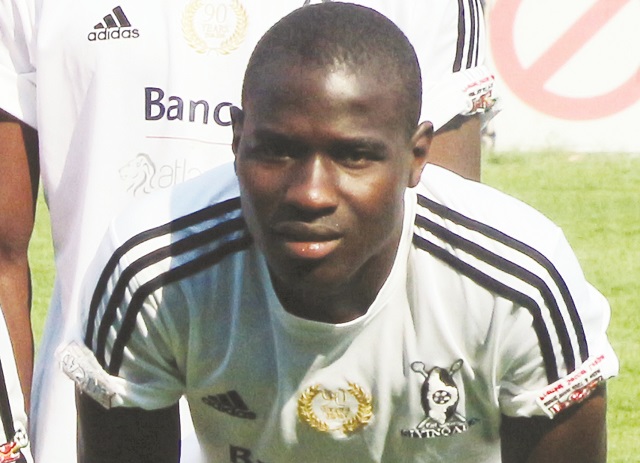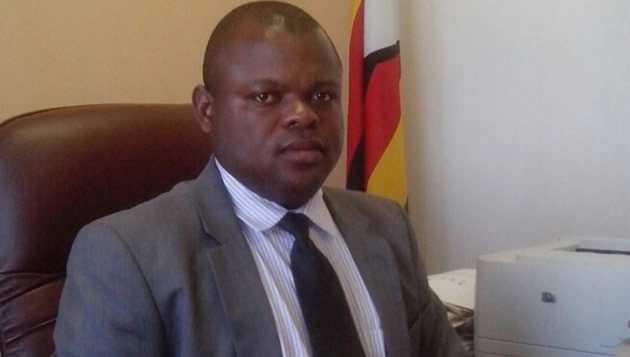Night driving: A major contributor to road fatalities

Raymond Jaravaza, Features Correspondent
IT’S twenty minutes after a Premier Soccer League match at the National Sports Stadium and the team manager of a Bulawayo based team is shouting “phangisani majida!” (street lingo for ‘hurry up guys’).
His charges have just lost 3-0. Despite that humiliating defeat, the team manager is not concerned about the results, at least for now.
His only concern at this moment is getting everyone into the team bus for the long trip back to Bulawayo – overnight.
Food and refreshments will be bought along the way.
Because football teams have not been spared the brunt of the economic hardships faced by the country, staying overnight in Harare or whenever they play away is not an option for the team.
The Bulawayo club just cannot afford the extra costs of paying for overnight accommodation for a squad of 18 players, five members of the technical team (coaches) and two members of the executive.
The only choice available is to drive overnight the 430 plus kilometres from the capital city to Bulawayo.
Driving back to base for football teams after a match, of course, is not peculiar to Bulawayo teams only.
But driving public transport vehicles at night may soon be a thing of the past if Government approves recommendations made by the Civil Protection Unit (CPU).
The decision to lobby Government against night driving follows a series of fatal accidents occurring on the roads after dark, the latest being that which killed 43 people on the spot and injured 31 others when a Zambia-bound King Lion bus rammed into a tree in the Nyamakate area in Hurungwe last month.
CPU director Mr Nathan Nkomo is of the view that driving at night was contributing to bus accidents and it should be banned.
He said the need to effect a ban on buses being driven at night was among a number of concerns and recommendations submitted to Government.
“I don’t want to pre-empt details of our petition to Cabinet but as a department and with views of other concerned associations, it has been noted that night driving has cost our country a lot of lives, hence, should be banned,” said Mr Nkomo.
He wants Zimbabwe to emulate countries like Zambia where driving is prohibited after 7PM.
If the ban is approved, cash strapped Premier Soccer League clubs will be hit hard as it would mean digging deep into their coffers to accommodate their teams whenever they play in other cities.
League matches in the country normally end just before 5PM and considering that players must shower before leaving the match venue, beating the 7PM deadline on night driving would be wishful thinking.
A snap survey by the Chronicle shows that just a few of the 18 clubs in the PSL have a policy against driving at night when their teams play in other cities.
FC Platinum spokesperson Chido Chizondo said the Zvishavane based club prohibits night driving.
“We have a strict policy on night driving. We book the team into a hotel and travel the next day regardless of the distance that the team has to travel back to Zvishavane after playing an away match,” said Chizondo.
The same goes for Ngezi Platinum, which is based in Mhondoro.
Club president Jeremiah Gasiteni said:
“Because we are the only team based in Mhondoro it means we travel a lot for away matches to different parts of the country but the club prohibits night driving. When playing, for instance, in Hwange the team books into a hotel after the match and only travels the following day,” he said.
It’s not surprising that the two clubs can afford to accommodate their teams in luxurious hotels considering that they are sponsored by rich platinum mining companies.
ZPC Kariba, when playing in Bulawayo also books the team into a local hotel after matches and travels the following morning.
At one time local champions Caps United opted to fly back to Harare after playing in Bulawayo instead of staying overnight.
The club’s reasoning was that flying was much cheaper compared to booking into a hotel coupled with dinner and breakfast costs.
But the same cannot be said of two of the biggest clubs in the country- Dynamos and Highlanders football clubs.
Because of financial constraints, Highlanders camp prior to a match and travel back to Bulawayo soon after their away games.
“Our driver is restricted on speed at all times, there is no rush to get to Bulawayo early after a match. Booking a hotel after a match means we have to spend more on camping allowances for the players and coaches and it’s not a secret that the club’s financial situation is tight,” said chief executive officer Nhlanhla Dube.
Dynamos president Kenny Mubaiwa said in the event a ban on night driving is imposed the club would have to find a sponsor to take care of overnight accommodation for the team after playing in another city or town.
“It’s expensive catering for the team’s accommodation and food so for now we drive back to Harare after an away game.
“We will have to abide by the laws of the country in the event night driving is banned by working round the clock to find a sponsor who will take care of our accommodation after an away match,” said Mubaiwa.
Bantu Rovers FC and Tsholotsho FC officials said their clubs are cash strapped thus cannot afford to book accommodation for their respective teams after playing away matches.
Hwange FC are no different.
The Hwange Colliery owned team are battling to pay their players’ salaries and booking accommodation after an away match is a luxury the club can’t afford.
The CPU believes that night driving comes with a number of challenges such as limited visibility.
The organisation’s major concern, however, is that when disasters occur at night, it can be difficult to reach the CPU at odd hours.
Mobilising assistance and resources at night also proves to be a major hurdle when the CPU attempts to reach out to an accident scene.
According to experts, fatigue, compromised night vision and impaired drivers all contribute to making driving at night more dangerous than during any other time of day.
In fact, the risk of a fatal crash is three times greater at night than during the day.
There is also a risk of hitting animals such as cattle and donkeys which normally wander onto highways.
Statistics show that 80 percent of road traffic accidents in Zimbabwe are as a result of human error.
An average of 1 700 people are killed on Zimbabwean roads annually while 30 000 others are injured.
Zimbabwe Cross Border Traders Association president Dr Killer Zivhu said his association would consider seeking a court interdict to ensure buses were banned from the roads as from 9pm, if Government did not act.
“The most noble thing to do is for the Government to ban buses and other public transporters from travelling after 9pm until everyone is satisfied that our roads are safe for night travel,” he said.
“If Government does not ban the operators from travelling at such hours, we will approach the courts seeking an interdict. Our members are the ones being mostly affected and the trend shows that such fatal accidents occur mainly during the night.
“It is not useful to continue watching such recklessness, while we lose bread winners for so many families, who will be trying to eke out a living through cross border trading. We cannot continue to lose lives of our members in such a way,” said Dr Zivhu. “Every road leading to our borders is not safe for travelling at night at the moment.
“The most logical thing is to stop night travel by these buses, which are always overloaded, with some of the operators choosing to travel during the night to avoid the police because their vehicles have faults.”
@RaymondJaravaza











Comments